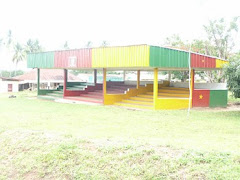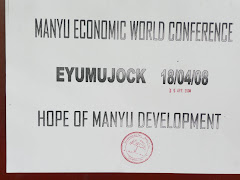

This article was written by Simon Etta for MEDWC Blog.



For most people who travel frequently, whether for business or leisure, a night in a good hotel can have a lasting impact on the success and fulfillment of their business venture or vacation experience. Because not all hotels are the same, travelers tend to either shop around or rely on references and internet reviews to make the ultimate choice on where to spend a good night. The question is not merely about a hotel offering the usual accommodation and dining experience but something that makes it unique and outstanding amongst the competition.
The Cameroon hotel industry is vibrant, steady and continues to improve and grow to international levels. It is now commonplace to find hotels with two, three, four and even five stars dotted across the country’s metropolis. This growth is fuelled by private sector actors investing in an industry that has always been the driving force in local economies around the world. Indeed, hotels account for a good portion of private sector jobs with yearly incremental growth in employment and massive contributions in local taxes and fees to City governments.
Limbe, one of the most beautiful and tropical coastal City’s of Cameroon, is the home of Trinity hotel. Limbe is also a seaside resort located on a fine bay with a backdrop of the famous Cameroon Mountain and considered an oasis of tropical coastal adventure. Trinity hotel situated near down beach and a walking distance to the Atlantic Ocean is one of Limbe’s finest. The hotel sits not too far from the water edge with a spectacular view of the ocean from its top floors. With a full scale restaurant, bar, pool, air-conditioned rooms and wifi internet, this modern hotel sets itself apart in excellence and guest satisfaction.
What therefore makes Trinity hotel unique and standout amongst the competition is quality service driven by a level of patronage. It is a direct connection between management’s vision, integrity and the hotel’s bottom line, paying special attention to customer needs and concern. In the hotel industry, integrity of this kind permeates an organization to create an effective culture directed to quality service. In the case of Trinity hotel, this is a culture that has come to place emphasis on customer service training across all levels of employees. In turn, there is a greater amount of discretionary service behavior all pointing to meeting and satisfying the demands of everyday customers. Upon arrival at the hotel you are welcomed by smiling faces, catering for your every need and making you feel at home. This includes the front desk, housekeepers, restaurant, bar staff and managers.

Based on hotel reviews, a great hotel should therefore offer not just comfort but excellent service, attractive design, clean atmosphere and well maintained scenic views. This is what Trinity has come to offer its growing customer base with guest from different parts of Cameroon and the world. When next in Limbe, get a taste of Trinity cuisine and fine hospitality by making it part of your unique experience and ocean front adventure. Visit Trinity at http://trinityhotelsrlimbe.com/trinity/.
Note: Trinity Hotel is operated and managed by the Obenofunde’s family. Simon Etta, the author of this article blogs for MEDWC. During his college years, he worked for the Hyatt Regency Hotel chain, learning about the hospitality industry and the importance of customer service. He has travelled extensively and lived in some of the finest hotels. Simon offers seminars in customer service to a wide variety of industries including hotels. In December 2011, he offered free customer service workshops to staff at Trinity, Elongo Gardens, and Data Hotels in Cameroon. He can be reached at esaghem@gmail.com



